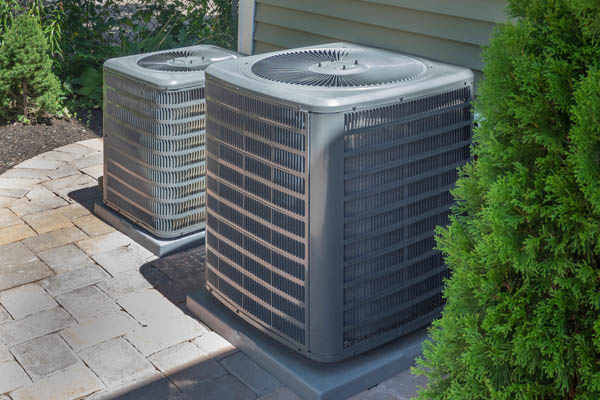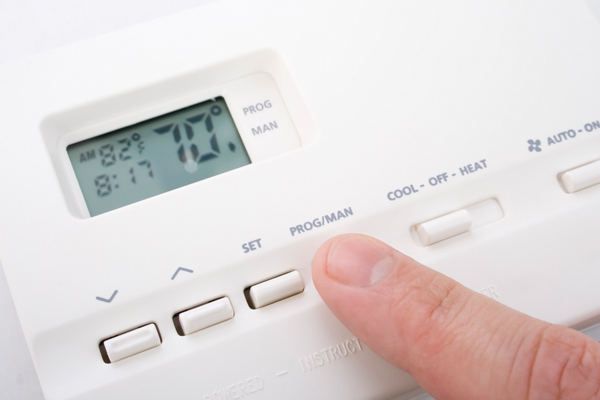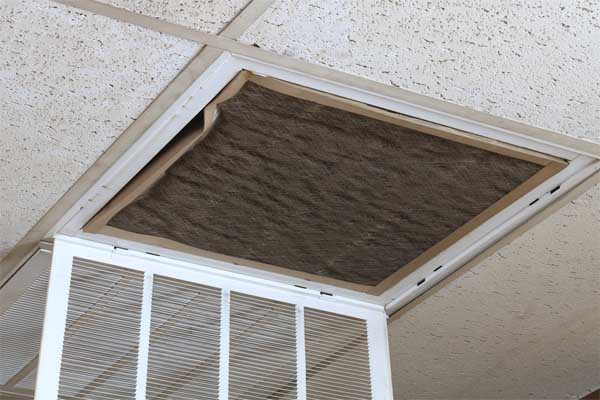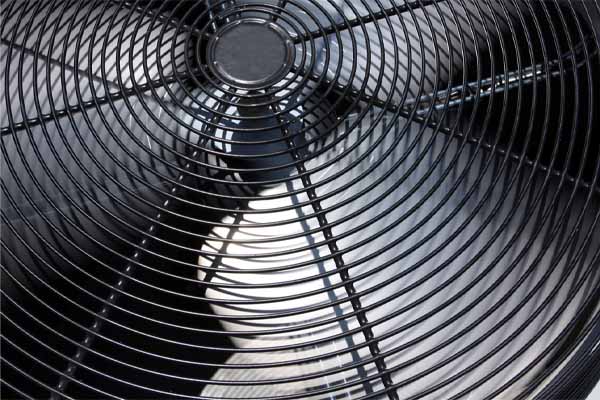What To Do When Your Heat Pump Compressor Won’t Turn On

Heat pumps let us control the temperature inside our homes, even if the weather outside is unpredictable. If it’s getting too hot, we can use the heat pump to cool down. And if it’s getting too cold, we can adjust the settings to feel warmer. But if the heat pump compressor not turning on, it’s a problem that needs to be fixed quickly. Call a reputable contractor for HVAC services. In this article, we’ll look at some common reasons why a heat pump compressor might not be working.
The Heat Pump Compressor Doesn’t Turn On
Contents
- The Heat Pump Compressor Doesn’t Turn On
- How a Heat Pump Compressor Works
- Why a Heat Pump May Fail to Turn On
- 1. Old Heat Pump Thermostat
- 2. Thermostat Batteries are Drained
- 3. Proximity to Heat Sources
- 4. Heat Pump Power Connection is Faulty
- 5. Heat Pump Air Filters are Dirty
- 6. The Outdoor Temperature
- 7. Outdoor Heat Pump Coils Are Frozen
- 8. Water Leaks in the Heat Pump
- 9. Inadequate Air Circulation
- 10. Heat Pump Has Low Refrigerant
- Conclusion
- Contact Point Bay Fuel For HVAC Repair and Maintenance
Heat pumps are complex systems with many components that can potentially fail. In some cases, the problem is easy to identify and fix, while in others it may be more difficult and require the expertise of a certified HVAC technician. Some common causes of heat pump failure include issues with the thermostat, power supply, refrigerant levels, and outdoor coil. Each of these issues may have its own underlying causes that will need to be addressed in order to fix the problem permanently.
How a Heat Pump Compressor Works

Understanding of how a heat pump works can make it easier to troubleshoot problems with the system. A heat pump is similar to an air conditioner in many ways, but it has the added ability to work in reverse to provide heat during colder months. Both heat pumps and air conditioners use electricity to power a refrigerant that flows through the system, and a compressor is used to facilitate this movement. A blower moves air through the evaporator coils to change the temperature inside, and another blower moves air through the condenser coils outside. The compressor is the biggest consumer of energy in a heat pump, so it’s important to make sure it’s working properly.
Why a Heat Pump May Fail to Turn On
Now that we understand the system’s foundations, we can explore potential reasons for its malfunction. Here are ten possible leads to investigate:
1. Old Heat Pump Thermostat

The thermostat controls the heat pump based on sensor readings. If the indoor temperature is far from the user’s desired temperature, the thermostat will make the heat pump run until the desired temperature is reached. Afterward, it will monitor the ambient temperature and turn the heat pump on again if necessary. However, old thermostats may not work properly due to dirt and grime on the sensors or wear and tear. Cleaning the thermostat may help, but it may need to be replaced if it is not working properly. Be sure to upgrade to a programmable thermostat or a smart thermostat.
2. Thermostat Batteries are Drained
If the thermostat is relatively new and accurate, but it is not turning on, the problem may be with its power source. If the thermostat cannot turn on, the heat pump will not receive the signal to start its heating or cooling cycles. Check the batteries on the thermostat. If they are low or dead, replacing them with fresh ones may solve the problem. If the display on the thermostat starts flashing numbers, then the problem may have been with the batteries.
3. Proximity to Heat Sources
If the problem persists, you need to continue investigating to determine the root cause. If the thermostat is clean and working, but the heat pump compressor is still not turning on, there could be other issues. It is possible that the thermostat is getting unusually high sensor readings because it is near heat sources, such as a space heater or an open window. Moving the heater away from the thermostat and closing the window shades to prevent sunlight from hitting the thermostat may help it get more accurate room temperature readings. This could solve the problem.
4. Heat Pump Power Connection is Faulty
If a home appliance is not starting, one of the first things to check is if it is plugged in. This also applies to the heat pump. The heat pump should have its own circuit breaker to isolate it from the rest of the home’s electrical system. Check to see if the circuit breaker is set to ON. If not, switch it to ON to see if that fixes the problem. Also, check for a tripped breaker or a blown fuse. Replacing the fuse or resetting the breaker should solve the problem.
5. Heat Pump Air Filters are Dirty

If the system runs but continues to trip, there may be another problem causing this issue. For example, the heat pump may be using more power than usual, causing the breaker to trip each time it is turned on. One possible reason for this behavior is dirty air filters, which can prevent adequate airflow and cause the system to overcompensate. Check the filters for dirt and replace them if necessary. This should fix the problem with the breaker tripping.
6. The Outdoor Temperature
An HVAC system’s capacity for heating and cooling depends on various factors, which contractors can help homeowners consider when choosing a suitable unit for their home. However, extreme weather can sometimes exceed the temperature range that the system is designed for. For example, a heat pump may struggle to provide enough heat in very cold winter weather. In these cases, an auxiliary heating system can provide additional support. However, this extra heat will require more power, which could cause the circuit breaker to trip. To prevent this, you may want to try turning down the heat and wearing extra layers of clothing instead.
7. Outdoor Heat Pump Coils Are Frozen
The outdoor unit of a heat pump has coils that need a constant flow of air to work properly. If these coils freeze, ice will block the airflow and reduce the system’s efficiency. The system may try to work harder to achieve its goals, but this could cause it to shut down due to the extra strain. Some homeowners may be tempted to chip the ice off the coils, but the result could be a malfunctioning system. It is better to shut the system down and let the ice melt naturally before restarting it.
8. Water Leaks in the Heat Pump

Take a step back from the outdoor unit and look at its surroundings. Check for anything that may have made the coils to freeze. If you want to prevent this problem in the future, you need to find where the excess moisture is coming from. For instance, check the gutter run-off, where icy water may be spilling onto the ground from the roof directly above the outdoor unit. If this is the case, have a roofer fix the issue. Additionally, make sure that the outdoor unit has at least 2 feet of clearance on all sides to allow for good air flow.
9. Inadequate Air Circulation
The outdoors is filled with unpredictable elements that can cause problems for your heat pump. It is important to check the unit regularly and deal with any unusual situations right away. For example, fallen leaves can get into the heating unit and prevent the air from circulating freely. If you notice any debris around the unit, remove it immediately. If there are any objects nearby, move them away from the unit. If plants are growing too close to the unit, trim them back. You can also build an outer protective cover over the unit to protect it from falling debris. However, if you do this, make sure there is still enough clearance for airflow.
10. Heat Pump Has Low Refrigerant
The heat pump uses refrigerant to transfer heat between the indoors and outdoors. If there is a leak, the refrigerant will flow out and the heat pump won’t be able to work properly. This will cause the heat pump’s performance to gradually decline until it stops working completely. To avoid this, call an HVAC contractor to find and fix the leak, and to add more refrigerant to the system before it stops working.
Conclusion
Heat pumps are installed to affect their surroundings, but they are also affected by their environment. HVAC systems can be affected by certain elements that can change how they function. Homeowners should be aware of any vulnerable components and take action when needed. The troubleshooting steps mentioned earlier can help in many cases, but if the problem persists, it’s best to call a certified technician for help. They can provide an accurate diagnosis and a lasting solution.
Contact Point Bay Fuel For HVAC Repair and Maintenance

At Point Bay Fuel, we pride ourselves on providing top-notch heating and cooling services to residents of Ocean and Monmouth County, New Jersey. Our team of certified technicians is second to none, with the expertise and experience to handle all of your HVAC needs, from tune-ups and repairs to installations and replacements. We only hire the best, so you can trust that your HVAC system is in good hands with us.
At Point Bay Fuel, we are committed to providing competitive prices for HVAC services in the area. Our maintenance services can improve your comfort and increase your energy efficiency, resulting in lower home heating and cooling costs. If you need a repair or replacement system, we can help you choose the best option for your home that fits within your budget. We are proud of our work and offer a satisfaction guarantee for installation, repair, and maintenance services. Contact us today to schedule a service appointment!
Contact us now by calling (732) 349-5059 to speak to one of our home comfort specialists! Click the link to view our service area.
